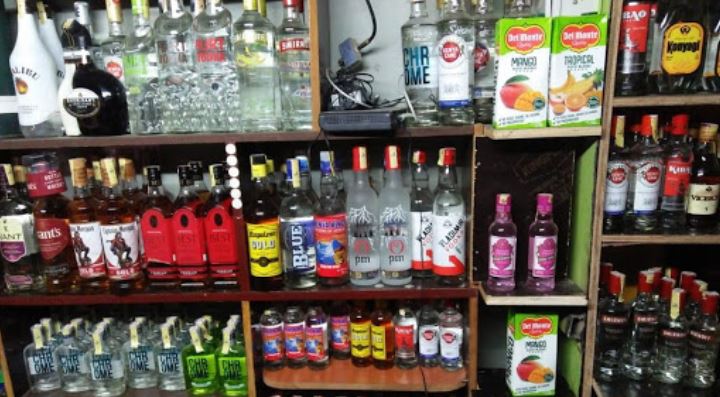
The new rules have been developed together with stakeholders including the Pubs Entertainment and Restaurants’ Association (PERAK), Alcoholic Beverages Association of Kenya (ABAK), and the Bar Hotels Liquor Traders Association of Kenya (BAHLITA).
The rules contain The Standard Operating Procedures for sale of alcoholic drinks, general hygiene measures, specific operations guidelines, social distancing guidelines, cleaning, disinfection and protective gear guidelines, and the screening protocol.
“Our government is very clear in our resolve, but fulfilling becomes much more problematic thinking about the critical next months of the pandemic. As we release them, we continue to underscore the need to adhere to the MoH protocols in the conduct of our businesses,” said Trade CS Betty Maina.
“Businesses are encouraged to lead through the COVID-19 crisis through managing risks in their operations. As we move into the festive season and the potential for successful vaccines to deliver a new period in dealing with a pandemic-altered world, there are high expectations. Consumers and society at large are expecting more from businesses. Embracing our responsibilities on exercising utmost care in adherence to the protocols will play to our advantage,” she added.
Here is a summary of the Standard Operating Procedures for Sale of Alcoholic Drinks:
Specific Operations Guidelines
- All Alcoholic drink retailers shall have a valid liquor/alcoholic license and register with an alcohol trade or membership association registered and recognized by the Government of Kenya.
- Condiments shall not be provided to customers in shared containers.
- Restrict the number of partakers allowed in an establishment once the premise is full.
- Ensure that the establishment is well ventilated and follow the protocols set out by MoH.
- Designate a waste disposal bin with a yellow liner for disposal of used Personal Protective Equipment (PPE).
- Every establishment shall set aside a suitable – Covid19 holding/emergency room for any suspected staff case and report to relevant authorities.
Social Distancing Guidelines
- Close dance floors during this time.
- Stagger shifts and rotate staff members to reduce the number of employees in the establishment at any one time when in operation.
- Arrange transport for staff, where possible, to reduce public transport use; as well as transport and relevant documentation for any staff leaving after curfew hours; adhere to gazetted transport restrictions and guidelines.
- Use e-commerce platforms and take advantage of the no-contact delivery options, minimizing contact between customers and couriers. Designate spacious waiting and collection areas for couriers and customers
General hygiene measures
- Sale of alcohol shall be governed by the Rules on COVID-19 issued under the Public Health Act Cap 242 and supplemented by the provisions of the Alcoholic Drinks Control Act 2010 and the respective County Governments Alcohol drinks control legislations.
- The Counter should be shielded with a Perspex glass to ensure the protection of the client and seller. No partakers shall be allowed to sit around the bar counter while consuming any alcoholic drink.
- All alcohol drink retailers shall provide a complete hand washing station (with running water, soap, and hygienic hand drying facility) and/or sanitizer at the entrance of the establishment for use by the customers.
- Retailers shall ensure that all equipment used in handling and/or dispensing alcoholic drinks are disinfected using recommended disinfectants. Common area surfaces should also be cleaned regularly with soap or alcohol-based disinfectants and appropriate disinfection of the premises done at the close of business
- Appropriate signage guiding on the maximum seating capacity per table and observation of the 1.5-meter distancing rule should be displayed. As well as signage at the entrance of the alcohol selling establishment, indicating the maximum number of partakers allowed into the establishment at any given time.
- Any physical activity that facilitates physical contact between partakers in an alcohol selling establishment should be discouraged. And, alcohol consumption shall be restricted to the designated areas within the establishment.
- Establishments are required to maintain a daily attendance register for all members of staff and encourage employees to self-monitor for symptoms of Covid-19. Where the employees exhibit any symptoms of Covid-19, the employer will encourage the employee to stay home, practice hygiene measures, and quarantine as prescribed by MOH. The employer should also promptly facilitate the testing of staff to confirm any suspected case of COVID-19 and ensure that cases are handled humanely, without any form of stigmatization, and in conformity to the approved patient medical confidentiality procedures. A point person to deal with employee, suppliers and customer Question & Answer daily or as required by the employees should be appointed.
- Cashless transactions are encouraged to reduce the handling of hard currency.
- Any Alcoholic drink retailers found in breach of COVID-19 Rules issued under Public Health Act Cap 242 shall take personal responsibility and consequent enforcement action.
Cleaning, disinfection, and protective gear guidelines
- Follow MoH guidelines for employees on wearing masks in public places (kitchen staff to wear Perspex shields); issue hand sanitizers to employees wherever possible; safely dispose of masks and other PPE used by employees as per MoH recommendations.
- Staff working in the bar area should demonstrate effective hygiene and sanitation awareness at their respective workstations. Staff should be able to communicate (verbally and in print) and enforce (with the help of government) MoH guidelines on Covid-19 hygiene and sanitation rules.
- Employers shall ensure employees acquire knowledge on social distancing, personal hygiene, and protection measures to limit their risk of contracting COVID-19 both within and outside of the workplace.
- Keep doors open wherever possible, or use swing doors, to minimize contact of door handles; Clean and disinfect all restroom surfaces including floors, sinks, and toilet bowls, as necessary.






